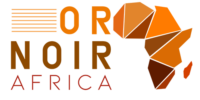EVENT
Senegal: NRGI takes action against methane emissions in the oil and gas industry

Senegal, recently emerging as a key player in the oil and gas sector, is at a crucial turning point. Faced with a significant rise in greenhouse gas emissions, particularly methane, the country must address critical environmental and health challenges requiring urgent action. These emissions contribute to 30% of global warming, having a direct impact on the climate.
Within this framework, the Natural Resources Governance Institute (NRGI), in partnership with entities such as the Rocky Mountain Institute (RMI), CN-ITIE Senegal, PWYP, AJITREPE and CESTI, has organized capacity-building sessions in Dakar. These sessions aim to equip civil society, the media and affected communities to better monitor and influence policies related to methane emissions.
The workshops covered key topics such as the principles of greenhouse gas emissions and the operational management of emissions in the oil and gas industry. The aim is to enhance participants' skills for better understanding and management of emissions, with a particular focus on harnessing data to improve the quality and quantity of reporting and awareness-raising campaigns.

Mamadou Seck, NRGI's Director for French-speaking Africa, underlined the importance of these initiatives in his opening speech, recalling that NRGI's mission is to promote sustainable and inclusive development in resource-rich countries, while minimizing the negative impacts of their exploitation.
Senegal, a signatory to the 2015 Paris Agreement, is also preparing for an assessment in 2025 to verify its compliance with the new EITI 2023 standard. This standard incorporates considerations on energy transition and environmental impacts, essential to redefining the country's energy trajectory.
The initiative aims to improve the implementation of methane reduction strategies, by empowering participants to better understand the issues around "GHG Emissions 101", including the fundamentals of emissions and their operational management in the oil and gas sector. Specific attention is given to the use of data to increase the quality and quantity of reporting and awareness-raising campaigns, crucial to stimulating an informed and active public debate.
The 2023 update of the EITI standard has introduced four major innovations, one of which focuses specifically on the energy transition and another on the environmental and social aspects of gas emissions. Senegal, which has performed well to date according to EITI criteria, is facing major challenges, particularly with regard to methane, a greenhouse gas with a much more significant impact than CO2, being 80 times more potent.
Faced with the challenges posed by the exploitation of natural gas and oil, it is imperative to put in place effective mechanisms to measure and manage these emissions. National legislation, in particular the new Environmental Code with its articles 133 and 134, plays a crucial role in this dynamic, providing for penalties for non-compliant emissions, including routine flares which are now prohibited with a few exceptions.
Ms. Aida Diop, NRGI's Country Program Manager in Senegal, underlined the importance of this initiative: "It is essential to strengthen our ability to influence and guide the reforms needed to better manage emissions. The active participation of all sectors is essential if we are to meet current and future climate challenges."
In conclusion, NRGI's efforts in Senegal represent a significant step towards aligning development.
-

 ANALYSIS11 month ago
ANALYSIS11 month agoThe 3 African countries richest in natural resources
-

 FOCUS ONA1 an ago
FOCUS ONA1 an agoThe 10 largest oil refineries in Africa
-

 NEWS8 month ago
NEWS8 month agoTop 10 des pays africains producteur de l’or : Mali 2-eme, Burkina Faso 3-eme
-

 NEWS2 ans ago
NEWS2 ans agoRanking of oil producers: Here are the Top 10 African countries.
-

 FOCUS ONA8 month ago
FOCUS ONA8 month agoTop 10 oil producers in Africa in 2023
-

 NEWS1 an ago
NEWS1 an agoTop 20 oil producing countries in 2022
-

 NEWS5 month ago
NEWS5 month agoAfrica's 10 largest natural gas production fields.
-

 NEWS7 month ago
NEWS7 month agoIvory Coast: Eni to deploy a cylindrical FPSO and a converted FSO on the Baleine oil field














